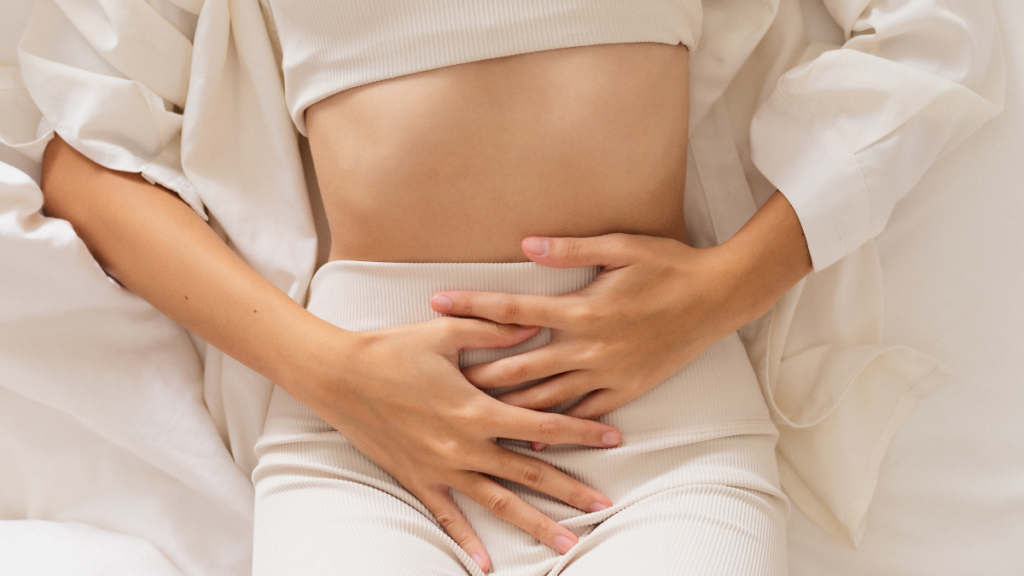If you’re here, you’re likely searching for answers.
Perhaps your periods have become unbearably painful or unpredictable.
Or you may have noticed changes in your body that you don’t understand.
The internet may have led you to Polycystic Ovary Syndrome (PCOS) and Endometriosis.
Could one of them be the explanation you’ve been looking for?
Having symptoms you can’t explain can feel scary and overwhelming. But having the right information can help.
In this article, we will delve into these two conditions – PCOS and endometriosis – exploring what they are, their symptoms, their causes, and how they’re diagnosed and treated. We’ll also share some common misconceptions along the way.
Understanding PCOS
Imagine a small party where too many guests show up. That’s somewhat akin to what’s happening in your ovaries if you have PCOS.
PCOS occurs when your ovaries or adrenal glands produce more male hormones than normal. This imbalance causes the ovaries to develop small collections of fluid that fail to release eggs regularly.
Common Symptoms and Signs of PCOS
-
- Irregular Periods: One of the first signs women with PCOS notice is irregular periods.
- Excessive Hair Growth: This symptom, known as hirsutism, results from excess male hormones. Women may notice hair growing in unexpected places like the face, arms, back, chest, thumbs, and toes.
- Weight Gain and Trouble Losing Weight: PCOS can make it harder for the body to use insulin, leading to weight gain.
- Acne, Oily Skin, and Dandruff: Hormones are your body’s internal messaging system. When these messages get mixed up, as in PCOS, you may find yourself dealing with skin issues.
- Fertility Problems: PCOS can disrupt the regular release of eggs, making it more difficult to get pregnant.
Understanding Endometriosis
Now, let’s discuss endometriosis.
Normally, your uterus has a soft lining (the endometrium) that thickens up each month in preparation for a fertilized egg. If that doesn’t happen, the lining breaks down and leaves your body during your menstrual cycle.
But in endometriosis, this endometrium tissue grows outside the uterus, such as on the ovaries or fallopian tubes. This can cause pain and other symptoms since this out-of-place tissue still acts like it should—thickening, breaking down, and bleeding with each menstrual cycle. The issue is it has no way to leave your body.
Common Symptoms and Signs of Endometriosis
-
- Painful Periods: If your menstrual cycle has you curled up in bed each month, it could be a sign of endometriosis. The pain can be severe and debilitating, starting before your period and lasting for several days.
- Painful Intercourse: Sex shouldn’t be painful. If you’re experiencing pain during or after sex, endometriosis could be a possible cause.
- Infertility: Endometriosis is also a common culprit in cases of infertility. It can interfere with the journey of the egg and sperm.
- Gastrointestinal Symptoms and Fatigue: Endometriosis can cause some women to experience fatigue, diarrhea, constipation, bloating, or nausea, particularly during their periods.
Comparing PCOS and Endometriosis
Symptoms
While both PCOS and Endometriosis can cause irregular periods and fertility challenges, they do have distinct differences in how they present.
PCOS is often associated with symptoms related to higher levels of male hormones, such as excessive hair growth and weight gain.
Endometriosis is primarily known for its severe pain during periods, sex, and sometimes even bowel movements or urination.
Possible Causes of PCOS vs Endometriosis
The exact cause of PCOS is like the chicken and the egg problem; it’s hard to know what comes first. It’s thought to be related to abnormal hormone levels, including high insulin levels. But factors like genetics and low-grade inflammation also appear to play a role.
The cause of endometriosis is also unclear.
Some theories suggest it may be due to something called retrograde menstruation, where menstrual blood flows back into the pelvic cavity instead of out of the body.
Genetic factors, hormonal imbalances, and immune system disorders might also play a part in this complex condition.
Diagnosing PCOS and Endometriosis
The methods for diagnosing these conditions vary.
PCOS is typically diagnosed based on symptoms, blood tests, and ultrasound examinations. It’s a process that often involves ruling out other potential causes of your symptoms.
Endometriosis is often more complex to diagnose, typically requiring a laparoscopy (a type of minor surgery) for a definitive diagnosis.
Treatment Options, Surgery, and Lifestyle Changes
Both PCOS and endometriosis are treated based on their specific symptoms and how they impact the individual.
PCOS treatments often focus on managing individual symptoms and improving insulin resistance, whereas endometriosis treatments usually aim to control the pain or remove the endometrial growth.
PCOS treatment may include lifestyle changes like a healthier diet and regular exercise, medications to manage symptoms, or fertility treatments if you’re having trouble getting pregnant. The goal of treatment isn’t just to deal with the physical symptoms but also to help you feel better in your daily life.
Treatments for endometriosis focus on managing symptoms and improving quality of life. This could include pain medication, hormonal therapies (like birth control pills or hormonal IUDs), or even surgery.
Implications for Fertility and Long-Term Health
Both PCOS and endometriosis can potentially lead to infertility, but the mechanisms are different. PCOS interferes with the regular release of eggs, whereas endometriosis can affect the structure of the reproductive system.
Additionally, women with PCOS are at a higher risk for conditions like type 2 diabetes, high blood pressure, and heart disease. So regular check-ups and proactive healthcare become even more important.
Endometriosis can increase your risk for certain types of ovarian cancer and ovarian cysts.
It’s important to keep up with regular healthcare check-ups and discuss any new or worsening symptoms with your healthcare provider. Understanding what’s happening in your body can help guide decisions about your health and well-being. No two journeys with PCOS or endometriosis are the same, so individualized care is key.
Misconceptions and Myths about PCOS and Endometriosis
PCOS Misconceptions
One common myth is that you can’t get pregnant if you have PCOS.
While it can make it more challenging, it’s not impossible. Various treatments exist to aid in conception.
Another misconception is that everyone with PCOS is overweight. While weight gain can be a symptom, many women with PCOS are of normal weight or even underweight.
Endometriosis Misconceptions
One persistent myth about endometriosis is that it’s just ‘bad period pain’ that women should endure.
The pain from endometriosis is not normal and can severely impact a woman’s quality of life.
Another common misconception is that pregnancy cures endometriosis. While symptoms may improve during pregnancy for some women, this isn’t a cure.
Misconceptions and Myths about PCOS and Endometriosis
Emotional Challenges Associated with Living with Chronic Conditions
Living with PCOS or endometriosis is not just about managing physical symptoms. These conditions can take an emotional toll.
Dealing with chronic pain, fertility problems, and unpredictable symptoms can lead to stress, anxiety, and depression.
Mental health is as important as physical health when managing PCOS or endometriosis. Consider reaching out to a mental health professional who can provide strategies to cope with stress and emotions related to these conditions. Online and local support groups can also be a valuable source of comfort and understanding.
Here are a few resources:
The Substance Abuse and Mental Health Services Administration (SAMHSA) National Helpline is a free, confidential, 24/7, 365-day-a-year treatment referral and information service. To reach the helpline, call 1-800-662-HELP (4357).
PCOS Challenge is the largest support organization for women with PCOS worldwide. For support and resources, visit pcoschallenge.org/pcos-support.
PCOS Awareness Association is a non-profit organization dedicated to raising the global understanding of PCOS. For support and resources, please visit pcosaa.org.
Encouragement for Women Experiencing Symptoms to Seek Medical Advice
Understanding PCOS and endometriosis is the first step toward better health. We hope this article has shed some light on these conditions, debunked some myths, and helped you better understand what you or a loved one may be experiencing.
If you’re experiencing symptoms that you think could be related to PCOS or endometriosis, remember that you’re not alone, and help is available.
It’s essential to seek medical advice and not to self-diagnose. Each woman’s experience with these conditions is unique, and professional help is invaluable in managing these conditions effectively.
Remember, you’re your own best health advocate. Keep asking questions, keep learning, and keep prioritizing your health.





